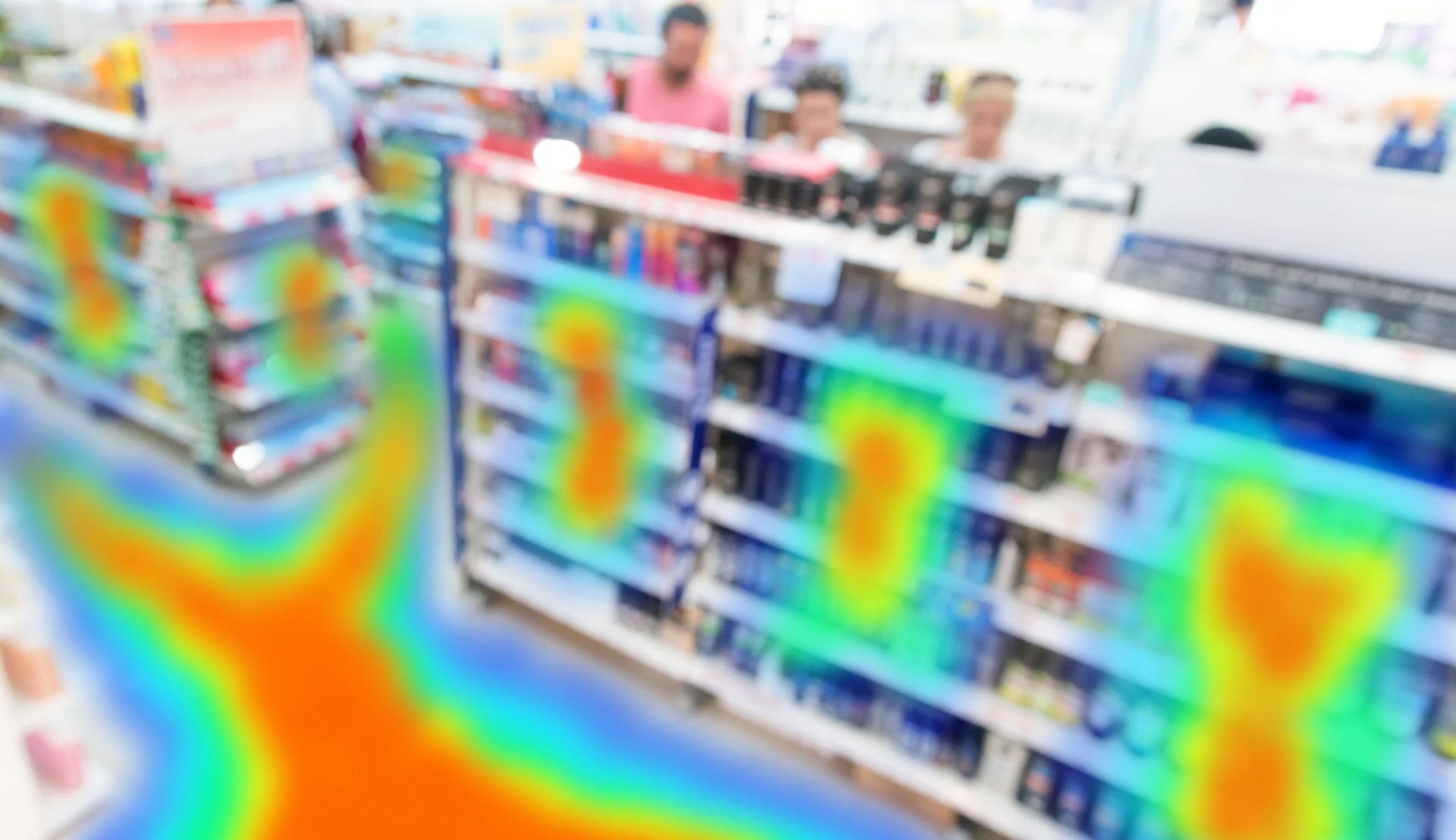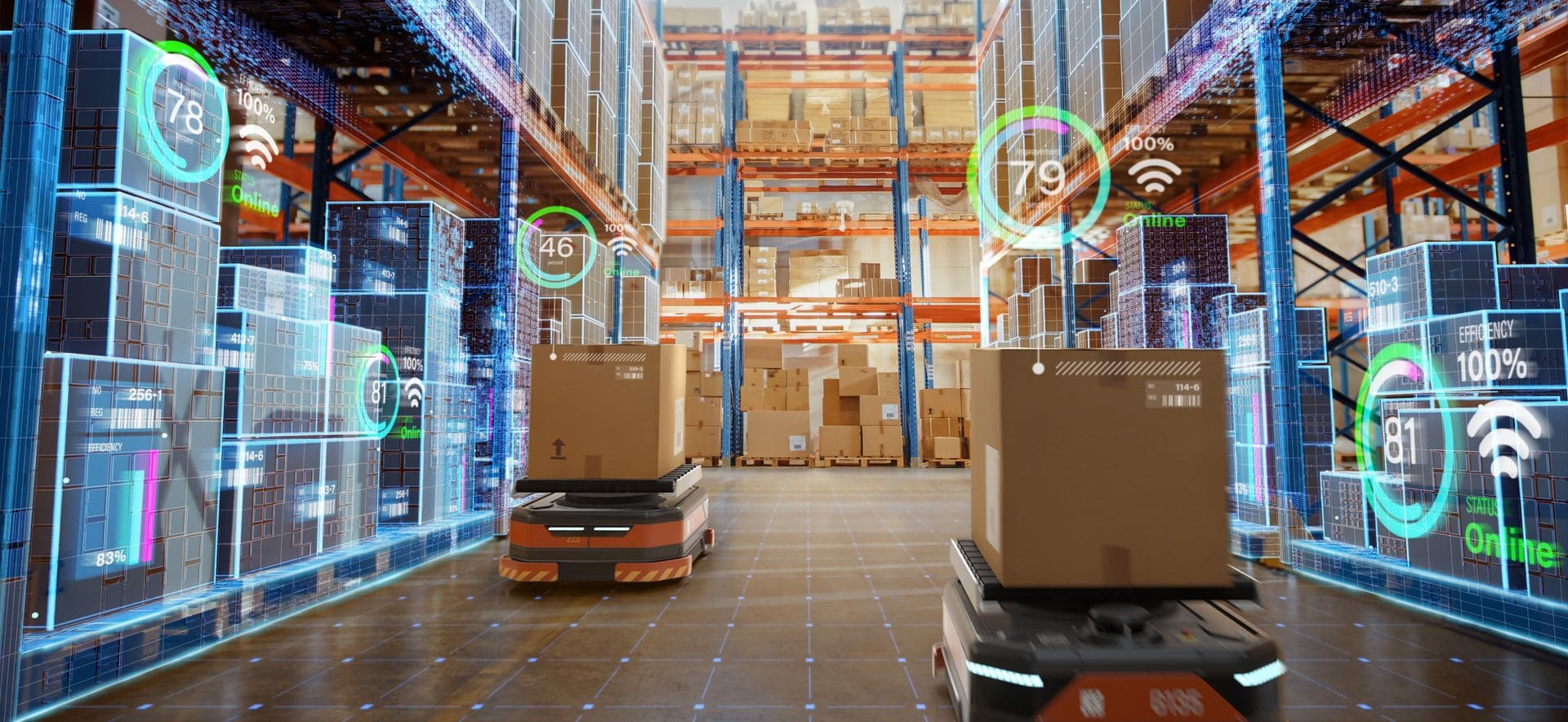AI in the Retail Industry – What Will the Future Bring?
- Published
- 9 min reading

Regardless of what technology the future brings, it is clear that Artificial Intelligence is already automating much of our work. In the long term, AI's contribution to many industries will only increase. In this article, you will learn about some of the uses of AI in retail, as well as the threats and challenges we will have to face in the future.
How AI is Changing Retail
It is safe to assume that AI is the next technological leap, just as significant as the invention of the internet, electricity and the steam engine were in the past. We are currently witnessing a breakthrough in digital transformation, and we are not yet able to predict how it will evolve over the upcoming months or years. It's worth keeping in mind that the revolution could already be at our doorstep, and the rapid adoption and integration of AI could theoretically arrive in the next few weeks.
AI is enhancing many jobs, from marketing and retail to business intelligence and analytics. It can save a lot of time by automating many repetitive tasks, which will allow specialists to focus on what really matters: solving problems and creating a more customer-centric approach.
As SPD Group points out, the share of AI in the retail industry has significantly increased over the past few years. AI in different aspects is now used by more than a quarter (28%) of retail companies, whereas in 2016 there were only 4% of such companies.
These conditions raise unprecedented challenges: Perhaps in the near future, at a certain basic level, everyone will have access to the same excellent tool. What will be the consequences of this? Instead of giving a competitive advantage, AI will simply change the starting point, and the competition will play out on a different level.
The most important criterion will be the ability to use AI and adapt its potential to the needs of a given company. As a result, the experience of specialists will remain a necessity– as they will either verify AI work or utilize it to automate their job.
New professions that combine AI with the traditional duties of specialists will also emerge. One of them could be, for example, an AI prompt engineer, who will be responsible for communicating with AI to achieve optimal results. So new professions, as well as new methods of reaching customers will emerge, and competition will become even tougher. However, certain factors will remain unchanged.
The number of customers will stay at the same level as nowadays, and their purchasing capabilities will not increase at all. This will lead to companies competing for the same customers, but in even more advanced ways.
How is AI Used in Retail?
AI in the retail sector can be utilized in a wide variety of areas. It’s most commonly used to improve the level of customer service and the personalized shopping experience or to optimize the company's processes.
8 Benefits of AI for Retail Business
Here are some ways of leveraging AI in retail:
1. Process automation
AI-assisted work is more reliable, as it eliminates the risk of occurring a human error while performing such tasks as invoice processing. Mistakes such as typos, misinterpretation, or accidental omissions can lead to delayed payments, incorrect financial records, and strained vendor relationships. AI-powered technology can automatically scan and extract data entries, ensuring accurate and efficient data capture. Artificial Intelligence in the retail industry is helping to automate many of the tasks that specialists used to do manually, therefore employees spend less time on repetitive and time-consuming tasks. As a result, they are able to put their effort into more customer-focused assignments.
2. Customer service – from automated assistance to cashierless stores
There are many levels of AI taking over customer service at the physical storefront and online shopping front. It can monitor customer behavior and measure customer satisfaction (using recognition of facial expressions). This will identify situations where the customer may need help and enable staff to respond faster.
In many stores, customers no longer check out products themselves. While customers choose the products they need and put them in the shopping cart, AI takes care of the checkout process. A common payment solution, which is often used in autonomous retail stores, is also to charge the payment from the linked payment card when the customer leaves the store.
3. Prevention of loss and theft
Automated charging for certain products will reduce the risk of loss. In the retail model, customers can enter a fully automated and self-service store only if they are previously authenticated. In this environment, the payment for the collected products will always be charged from their account.
In cases of physical retail stores with traditional services, AI can be used to detect suspicious behavior and detect theft. Loss prevention can also be based on detecting products that should be sold out soon (due to expiration date or the end of the season).
4. Customer behavior analysis
AI can also help analyze patterns of past customer behavior to develop better guidelines for customer experiences in the future. This will allow better product recommendation for more optimized purchasing processes.
Technological advances and new tools are influencing customer behavior and their preferences regarding the purchasing process. Such a change could be, for example, the popularity of voice assistants, but also any other revolution that may come in the future.
AI's task will not be to predict the popularity of given products. Instead, based on data about the technologies and tools that customers use, the company will analyze their behavior and suggest the optimal solutions for the business.
AI can also analyze customer behavior to detect which in-store circumstances are causing a sudden drop in sales or are a distraction to the purchasing process. The analysis of customer behaviors can also apply to the e-commerce space, where AI detects poorly optimized touchpoints, such as unintuitively designed UI and UX elements.

5. Providing a unique customer experience
Providing personalized messages and communications to customers, as well as using customer insights and personalized offers all play a role in building a unique customer experience. This makes customers feel important and valued, which translates into increased customer loyalty.
Personalized messages help the brand be perceived less like a vendor and more like an approachable partnership. If there are problems (such as an error in the service process), customers may also forgive the company more easily and return to using its services.
6. Interactive chat
AI can be used to introduce a chatbot that allows customers to get real-time help in the way that suits them best. Chatbots can answer the most popular questions about products and services, but the collected data on customer preferences, actions, and concerns can help detect various pain points for customers.
Such data will help inform decision-making on how to optimize the customer experience, from placing products in the store to the structure of the app or website.
7. Logistics - supply chain optimization
Artificial intelligence can analyze what and where products were sold fastest, and therefore where they are needed most. With the help of deep learning, the supply chain can be optimized to deliver the most needed products to consumers in specific locations. Algorithms can also help in finding optimal and cost-effective shipping routes.

8. Scheduling the time and location of employees
AI makes it possible to identify increased demand for employees in specific locations based on customer traffic. This empowers scheduling decisions, hiring opportunities, and may even identify potential overstaffing issues. This will help in avoiding employee overload and will have a positive impact on their well-being in the long run.
What Are Some Examples of AI Usage in the Retail Industry?
AI is already being used in many different retail industries, including fashion, food, pharmacy and convenient stores. It is contributing to improving a company's financial performance, retail operations, and customer experience. Below are practical examples of how AI is utilized in retail.
AI in the fashion industry – virtual fitting rooms
In the fashion industry, AI can be used to support customers' purchasing decisions in a wide variety of ways. Special applications and tools can help select the right shoe size, for example. That's how it works for Nike, which has introduced a new Nike Fit feature to its app. It allows customers to find the true size of their feet using augmented reality to take accurate measurements.
The AI component arrives as it compares the taken measurements with data collected from other users, which are used to determine the fit of a particular shoe model to a particular size. As a result, the app can suggest buying the exact size or a shoe that is smaller or larger by for example a half of a size.
Another example is The North Face, which utilizes artificial intelligence to help customers match a model of a coat to their needs. Users answer questions about the kinds of conditions they intend to use the jacket in, and an algorithm searches for the most suitable model for them.
AI in the beauty industry – finding the perfect shade
In the beauty industry, customer service and expert advice from store employees are foundational elements. Most often customers are concerned about subtle details, such as choosing the right shades of a given cosmetic.
That is why Sephora has created an app that scans a customer's face and, based on the collected data, provides personalized recommendations for shades, lipsticks and other beauty products.
AI in the fast food industry – fast and convenient ordering
In this industry, it’s not just about the quality of the food, it's also about the speed and convenience of provided services. Customers would like to receive their order right after entering the restaurant.
How do we accomplish this?
App-based or mobile ordering offers a premium solution for ordering meals. AI-enhancements to these purchase options make ordering even more convenient while providing customers with improved personalization.
To enhance the ordering process with AI, companies are choosing to introduce voice assistants. Established powerhouses like Starbucks and Taco Bell have introduced these solutions for example. These companies allow customers to make voice orders on the go and pick them up at the restaurant.
AI in the pharmacy – improved patient service and relevant recommendations
AI in a pharmacy setting can be utilized to improve the patient service process and operations as a whole. AI-assisted chats can help patients scheduling and refills. AI can also be used to flag errors, reducing denials and maximizing revenue. AI can also summarize medical information, automate documentation, and suggest over-the-counter alternatives. It also recommends affordable medication options based on formulary coverage.
To Sum Up: What is the Best Use of AI in Retail?
The best use of Artificial Intelligence in retail is the one based on a holistic approach to introducing AI into processes within the company – from raw data and analysis to customer service. This is how it should be implemented to utilize its potential even more effectively.
Future of Artificial Intelligence in Retail
The future is facing AI. At the beginning of this decade – In 2021 – the global value of developing AI for the retail industry was 4.84 billion USD. Expenses to develop AI for retail businesses will only increase, and its estimated that by 2029 it will reach as much as 52.94 billion.
What might the future of AI in retail and marketing look like?
- AI in the retail industry will help optimize processes even further and help in monitoring their efficiency
- AI in marketing will help create even more tailored messages that will lead to developing even better relationships with customers
How Comarch Can Help
The retail industry is developing rapidly and year after year manufacturers are introducing more and more solutions based on new technologies, machine learning, and AI. To not fall behind the competition, it is necessary to constantly develop retail solutions.
We can help you in starting an AI-powered retail loyalty program with a range of tools and functionalities that will take your business to the next level. These include:
- AI/ML Personalized Marketing Services – for creating personalized offers and promotions for customers
- AI/ML Powered Chatbot – for automating interactions with customers and providing them with quick and convenient solutions to their problems while delivering a personalized and seamless shopping experience
It is also worth mentioning that the use of AI also brings many risks. These are mainly related to the fact that AI processes and generates a lot of information that can be targeted by attacks. To prevent this, it is important to always follow the latest cybersecurity recommendations and use only trusted providers of IT services.
If you want to use AI to develop good relationships with your customers, check out the Comarch Loyalty Marketing Platform. Contact us and find out how we can help you grow your business!


